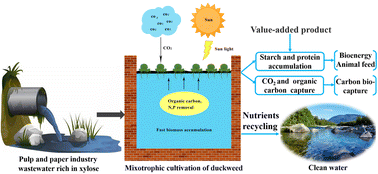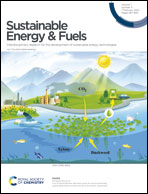Use of hemicellulose-derived xylose for environmentally sustainable starch production by mixotrophic duckweed
Abstract
Duckweeds are aquatic plants with considerable potential as substrates for environmentally sustainable production of bioenergy and proteins because of their extremely high starch and protein yields, and nutrient uptake capability from various wastewaters. D-Xylose is a common sugar that exists on earth and the main sugar element of lignocellulosic hydrolysate. Efficient utilization of xylose is necessary to reduce the high cost of duckweed-based biofuel production. In this study, the potential use of D-xylose by duckweed was tested for heterotrophy and mixotrophy. The results showed that duckweed was capable of mixotrophic growth but not heterotrophic growth on D-xylose, which suggested that photosynthesis was necessary for D-xylose metabolism, with 2.8-fold increases in biomass yields compared with that of photoautotrophy. Furthermore, D-xylose markedly boosted starch accumulation up to 9.7 times higher than in photoautotrophic duckweed, and promoted nutrient recovery efficiency. The present study showed that mixotrophic duckweed could use inorganic and organic carbon simultaneously, offering an attractive strategy to enhance the duckweed biomass production with a higher carbon capture efficiency from the surrounding environment, thus boosting starch and protein productivity for bioenergy and food conversion. The method developed in this study demonstrated novel applications in duckweed biomass-based renewable bioenergy production with inorganic and organic carbon capture combined with potential organic carbon wastewater treatment. This will enable the recycling of different carbons for various uses and realize a circular economy.

- This article is part of the themed collections: Sustainable Energy & Fuels Recent HOT Articles and A collection of papers from RSC journals on chemistry and the circular economy


 Please wait while we load your content...
Please wait while we load your content...